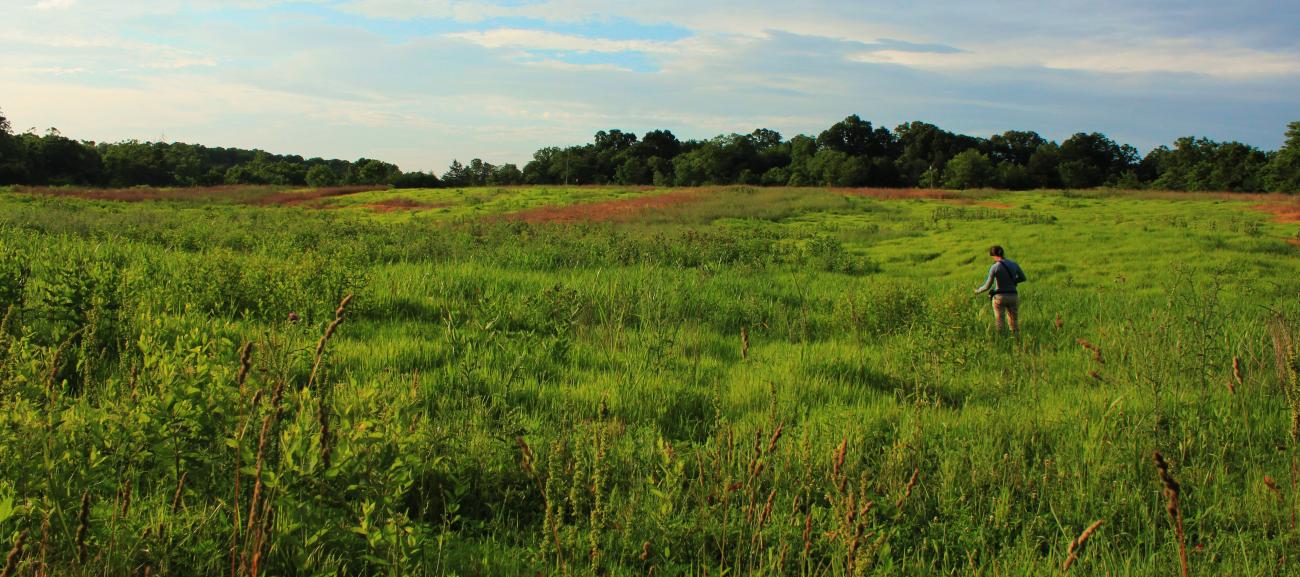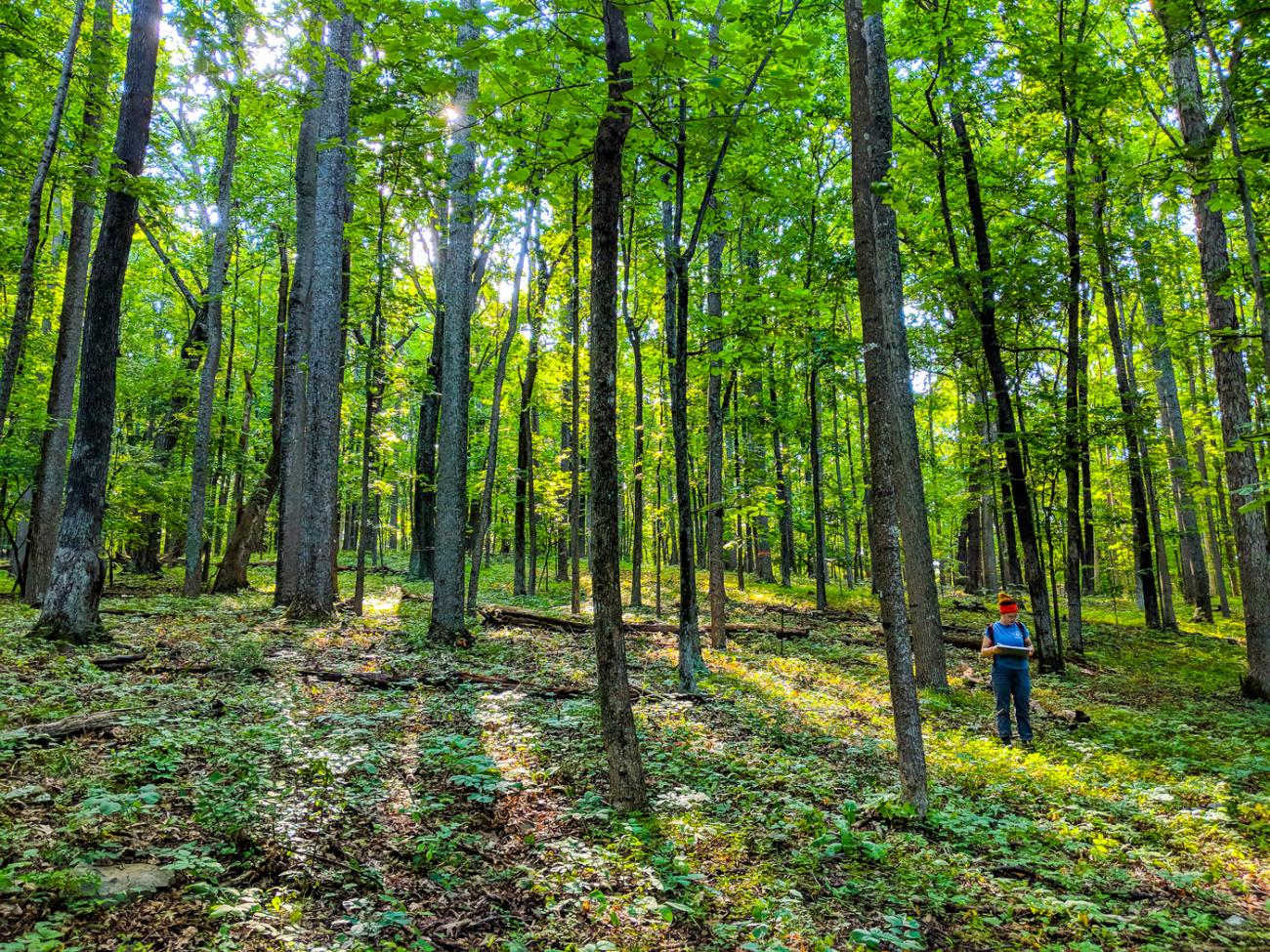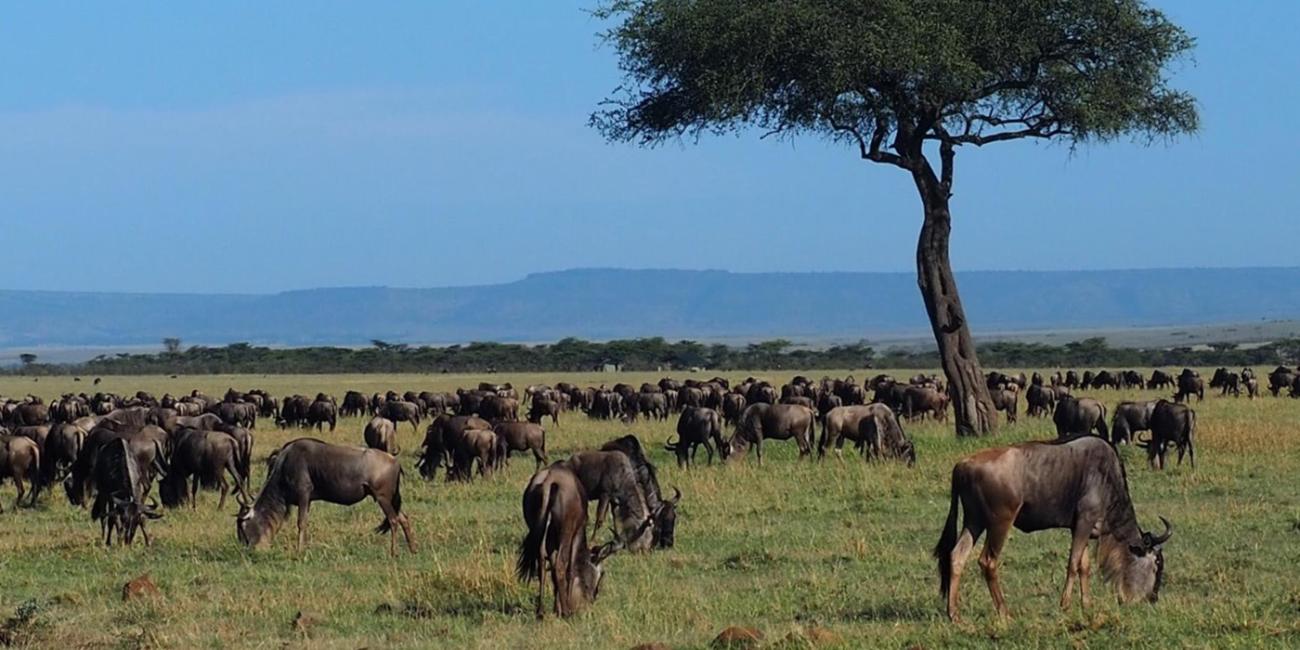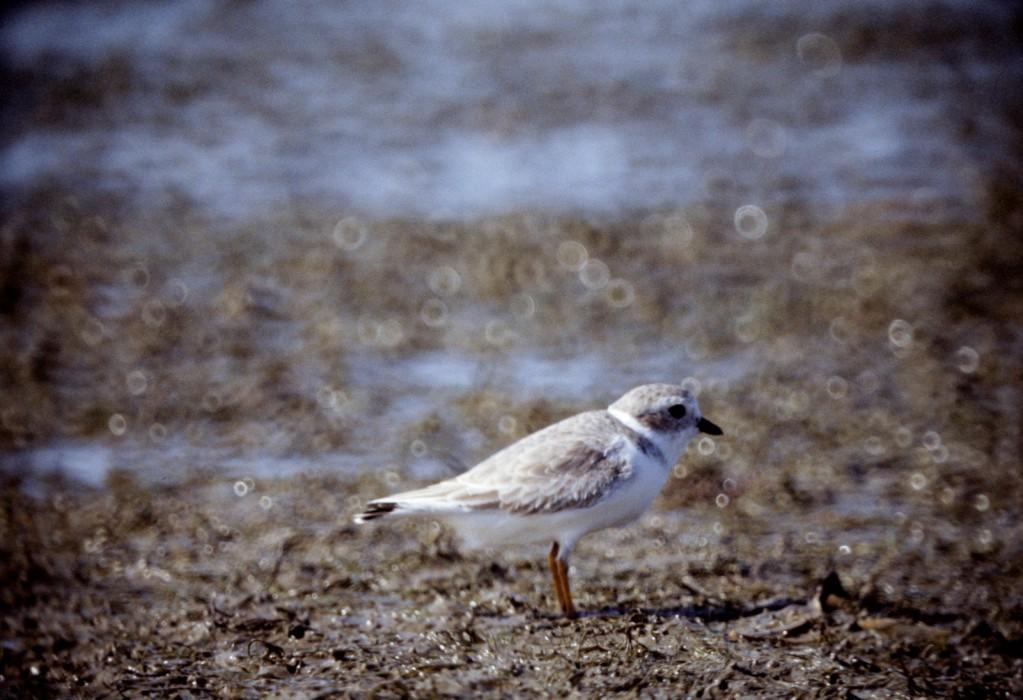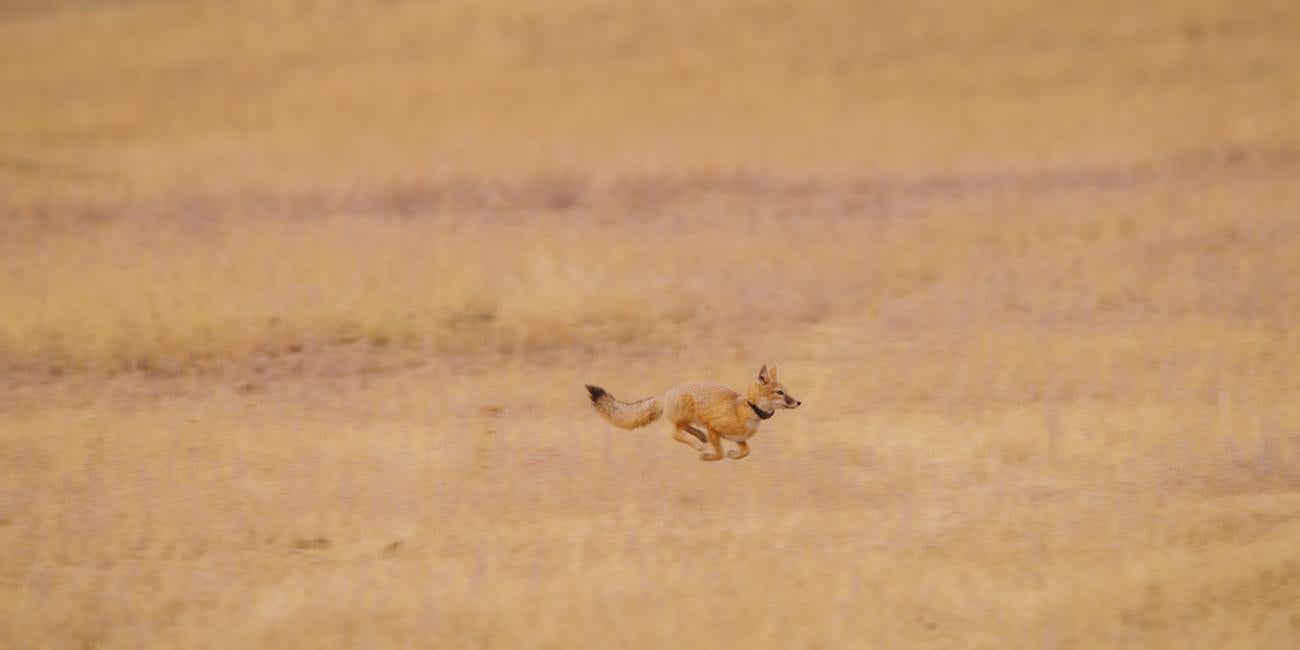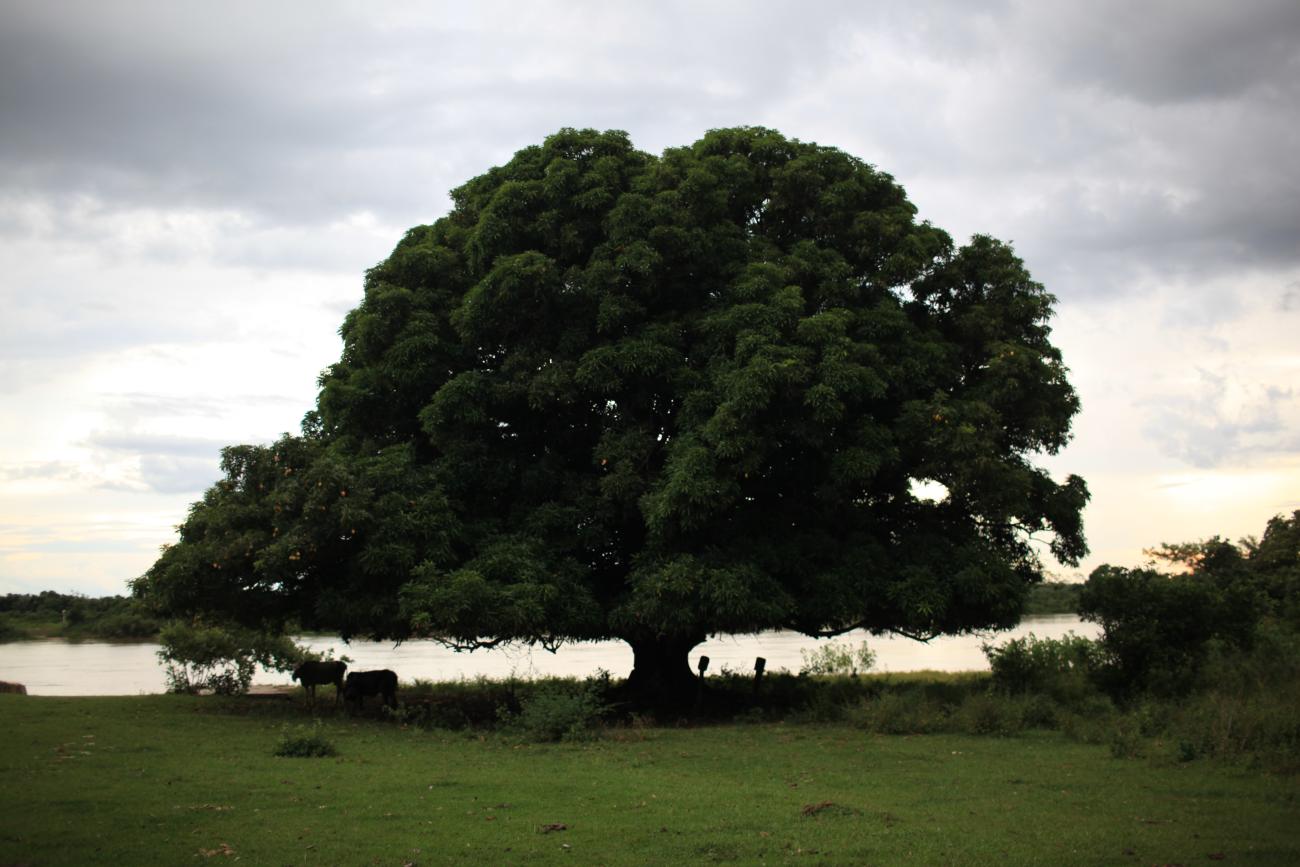Investigating the Role of Invertebrates in Nutrient Cycling
Invertebrates, such as dung beetles and grasshoppers, play a crucial role in recycling nutrients in ecosystems.
Our research aims to understand what factors influence the populations of these important invertebrates in grasslands. We study how grazing, use of insecticides, types of plants, and local climate affect insect populations, which can inform conservation strategies and how we manage rangelands.
What We Know About Invertebrate Herbivores and Belowground Systems
Invertebrate herbivores help store soil nutrients. First, by consuming plants, herbivores move nutrients through the food web—plant tissue is turned into fertilizer. Dung and urine excretions produce resource hotspots where decomposers multiply and are quick to reincorporate nutrients into soils. Second, the carcasses of numerous invertebrate herbivores break down quickly, and can provide essential nutrients to the soil. Finally, herbivores indirectly drive nutrient transfers through their effects on vegetation communities: when certain plants are eaten selectively, the remainder alters the composition of the soil through a variety of plant traits, including root growth, associated microbial communities, and changes in quality of litter inputs.
In grasslands, grasshoppers are often dominant herbivores—eating up to 150% of the aboveground plant biomass as cattle. Although native to the grasslands the insects are often considered pests, which is why suppression programs aim to reduce the number of grasshoppers in these systems.
Preliminary work from our team suggests that longer-term reductions in grasshopper densities result in significant reductions in soil carbon and nitrogen storage. Our research seeks to provide an improved understanding of the ‘when’, ‘where’, and ‘why’ of soil nutrient storage and loss, which can help ranchers supplement incomes, provide ecologists with guidelines for rewilding projects, and help local leaders enact reliable climate mitigation strategies.
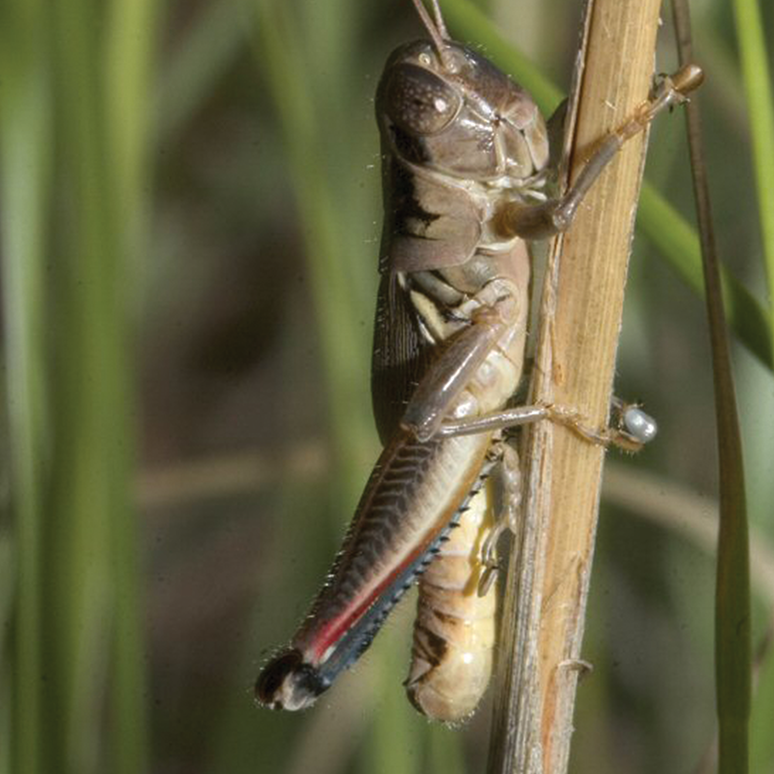
Although grasshoppers are often considered pests, research suggests longer-term reductions in grasshopper densities result in significant reductions in soil carbon and nitrogen storage.
Our research on the role of dung beetles in grassland ecosystems
Whether herbivores transform grassland plants into high nutrient excretions or plants die at the end of the season and become litter, invertebrate decomposers provide the next step in nutrient recycling. In particular, dung beetles play a key role as soil engineers: these insects improve pastures for grazers, increase the water retention capacity of soil, and increase the amount of nutrients that are stored in soil.
Early research from our projects provides evidence that dung beetle communities play different roles depending on whether the grasslands are grazed by bison or cattle. These results may have implications for grasslands management and sustainability, including carbon sequestration.
We also study the use of traditional cattle deworming medications on dung beetles. While helpful to cattle, these medications are harmful to dung beetles. Our ongoing research on this phenomenon is a large and highly collaborative effort, involving several universities, nonprofits, government agencies and ranching communities.


